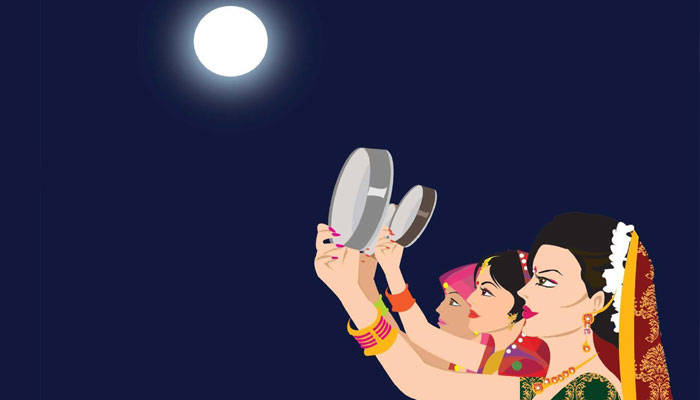TRENDING TAGS :
Karva Chauth: A day dedicated to husbands from wives
Lucknow: Karva Chauth, a festival celebrated by the Indian women from different states, is occasion in which married women keep fast (nirjal vrat) from Sunrise to moonrise for the safety, longevity and well-being of their husbands.
Sometimes, the fast is also kept by the unmarried girls for their desired husbands.
What is the meaning of Karva Chauth?
Karva means 'pot' and Chauth means 'four', is a reference to the fact that the festival falls on the fourth day of the dark-fortnight, or krishna paksha, of the month of Kartik
Rituals:
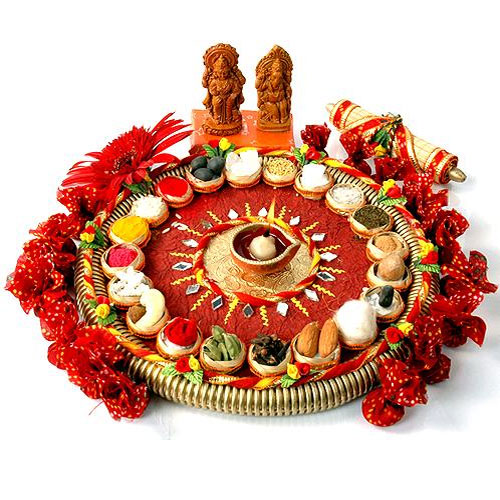
- The women begin their fast before the sunrise by intaking sargi (pre-dawn meal that includes fenia).
- Women will break the fast only after offering prayers to the moon.
- They decorate their pooja thaal with a karva, seekh, sieve, piece of sweet, farah (dish made from rice flour) and a glass of water.
- Women applies mehandi on their hands and does no housework. Parents often send gifts to their daughters and their children.

- Once the moon is visible, fasting women offers water (arka) to the moon to secure its blessings. After that she views the reflection of the moon through a sieve (Atta Channi ) or her chunri and turns to her husband and view her husband in the same manner.
- In some regions, women also touches the feet of her husband after which husbands take water from the thali and gives his wife her first sip and feeds her with the first morsel of the day (usually something sweet).
Muhurat for Karva Chauth 2017:
- The muhurat for the Karva Chauth Puja will start at 1803 hours and end at 197 hours.
- The timing for moonrise is scheduled at 2027 hours.
- The Chaturthi Tithi on Karwa Chauth begins on the 8 October at 04:58 PM and the Chaturthi Tithi ends on the 9th of October at 02:16 PM.
History behind Karva Chauth:
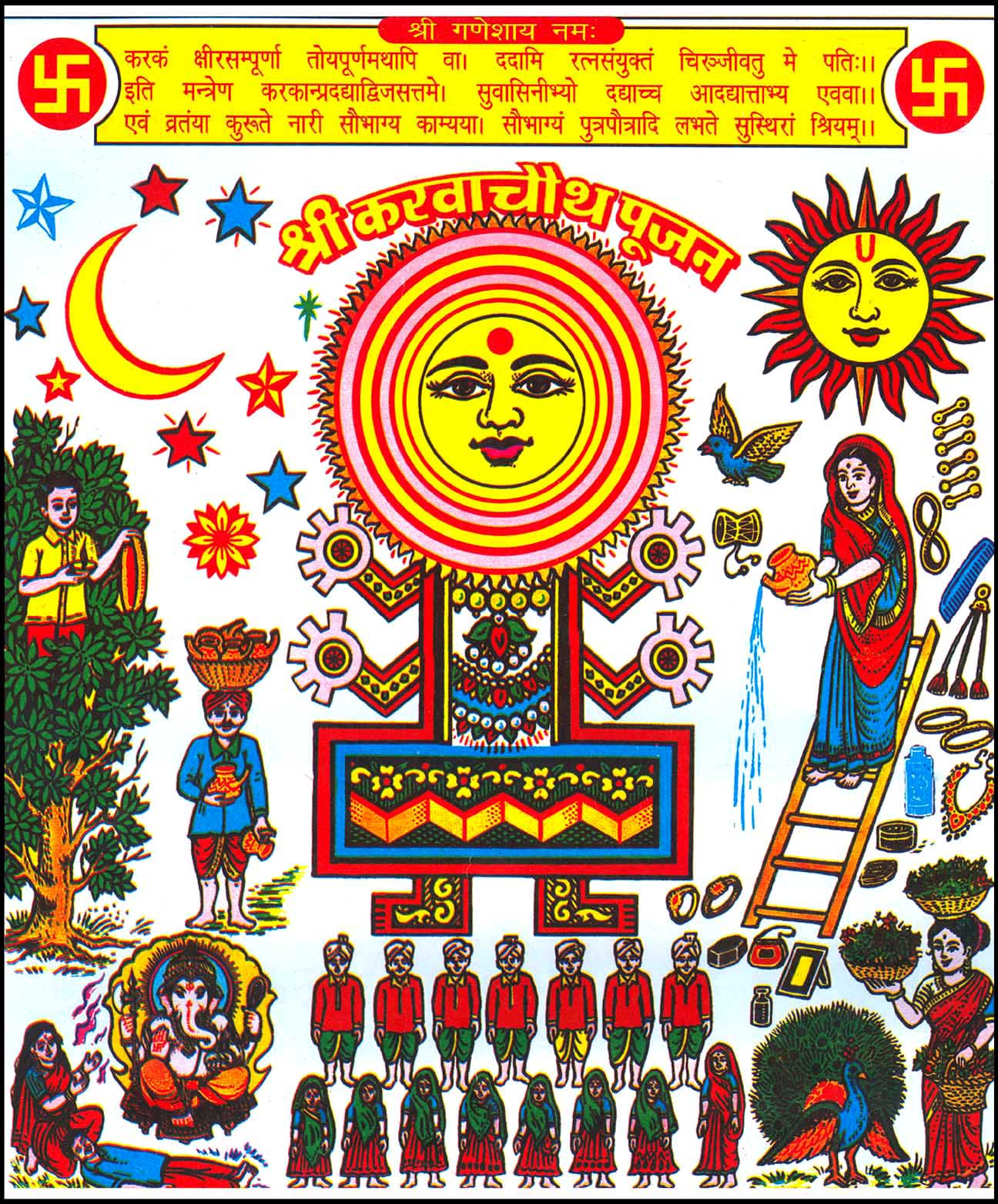
There are many stories behind the occasion of karva Chauth. Here are the few we bring to you:
The story of the Queen Veervati:
Queen Veeravati was the only sister in seven brothers. She spent her fast at her maternal house.

She was fasting since morning but by the evening she suffered severe thirst and hunger and was desperately wainting for moonrise.
Seeing their sister in such a restless manner, the brothers created a mirror in a pipal tree that made it look as though the moon has risen.
Queen, mistook it for the moonand broke her fast.
The moment she ate, word arrived that her husband, the king, was dead. Heartbroken, queen wept through the night until her shakti compelled a Goddess Parvati to appear and ask why she cried.
When the queen explained her distress, the Goddess revealed how she had been tricked by her brothers and instructed her to repeat the Karva Chauth fast with complete devotion.
When Veervati repeated the fast, Yama was forced to restore her husband to life.
The Legend of Karva
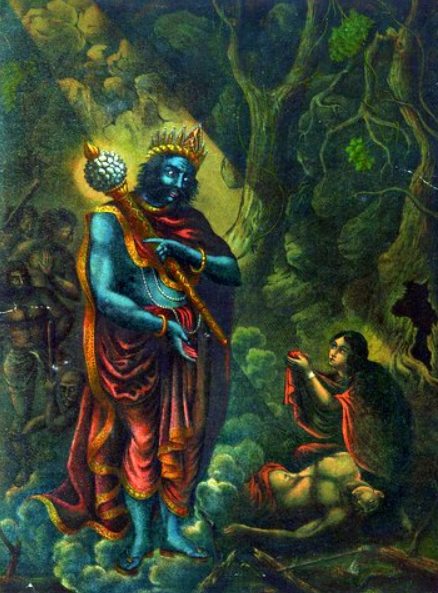
A woman named Karva was deeply devoted to her husband. Her intense love and dedication towards him gave her shakti (spiritual power).
Her husband was caught by a crocodile while he bathing in a river.
Karva bound the crocodile with a cotton yarn and asked Yama (the god of death) to send the crocodile to hell. When yama refused to do so, Karva threatened to curse him and destroy him.
Yama, afraid of being cursed by Pati-vrat (devoted) wife, sent the crocodile to hell and blessed Karva's husband with long life. Karva and her husband enjoyed many years of wedded bliss. To this day, Karva Chauth is celebrated with great faith and belief.
Mahabharata:
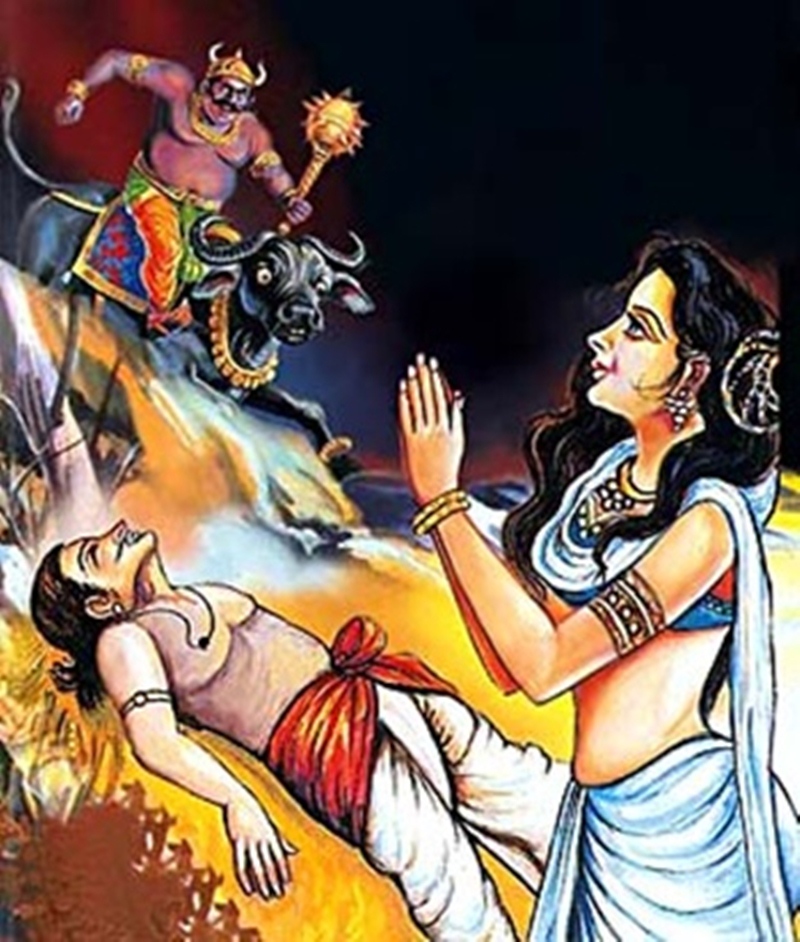
According to Mahabharata, Karva Chauth can be traced back to the time when Savitri begged the god of death, Lord Yama, for her husband’s soul.
Another episode in the epic states that when Arjuna went to the Nilgiris to pray and meditate for a few days, leaving the rest of the Pandavas and Draupadi behind, his wife got worried and she sought Lord Krishna’s help.
He advised her to fast for Arjuna’s well-being and reminded her how goddess Parvati did the same for Shiva’s safety. Draupadi adhered to the fast, observing all its rituals carefully and soon Arjuna returned home.

